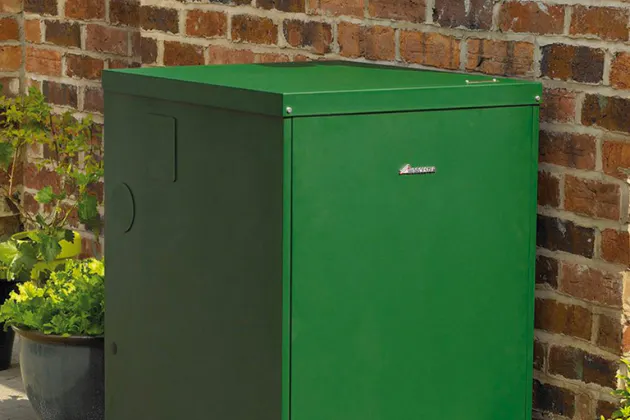Oil boilers are critical heating systems in many homes, providing reliable warmth and comfort during cold months. Yet, like any sophisticated piece of machinery, they can develop problems that compromise their performance and efficiency. Understanding common oil boiler issues is essential for homeowners who want to maintain their heating system's reliability and prevent costly breakdowns.
Regular maintenance isn't just a recommendation—it's a necessity. Neglected oil boilers can lead to unexpected failures, increased energy consumption, and potentially dangerous operational conditions. A well-maintained boiler not only runs more efficiently but also extends the lifespan of your heating system, saving you significant money and inconvenience in the long term.
From identifying warning signs to understanding when professional intervention is necessary, this article equips you with the knowledge to manage your oil boiler confidently and proactively.

Why Regular Maintenance is Crucial
Regular maintenance of your oil boiler is not merely a suggestion—it's a necessity for ensuring optimal performance, safety, and longevity of your heating system. Annual boiler service by a qualified technician offers several key benefits:
- Enhanced Efficiency: A well-maintained boiler operates at peak efficiency, consuming less fuel and reducing energy bills.
- Improved Safety: Regular checks can identify potential safety hazards, such as carbon monoxide leaks, before they become dangerous.
- Extended Lifespan: Proper maintenance can significantly extend the life of your boiler, delaying the need for costly replacements.
- Reduced Breakdown Risk: Preventive maintenance helps identify and address minor issues before they escalate into major problems, reducing the likelihood of unexpected breakdowns.
- Warranty Compliance: Many manufacturers require regular servicing to maintain the validity of your boiler's warranty.
Neglecting maintenance can lead to several consequences:
- Increased Energy Bills: An inefficient boiler consumes more fuel, leading to higher energy costs.
- Reduced Heating Performance: Neglected boilers may struggle to heat your home effectively, resulting in inconsistent temperatures and cold spots.
- More Frequent Breakdowns: Without regular care, components are more likely to fail, leading to inconvenient and potentially costly breakdowns.
- Shortened Lifespan: Lack of maintenance can significantly reduce the operational life of your boiler, necessitating earlier replacement.
- Safety Risks: Unmaintained boilers can develop faults that pose serious safety hazards, including carbon monoxide leaks and fire risks.
Top Common Oil Boiler Issues
The most common oil boiler issues include:
Oil Boiler Won't Start (Boiler Lockout)
A non-starting oil boiler is a common issue that can leave you without heat. Here are the primary causes and solutions:
- Lack of Heating Oil:
- Check your oil tank gauge. If empty, refill immediately.
- If oil is present, ensure the oil line valve is open.
- Boiler Lockout:
- Locate the reset button on your boiler (consult your manual for its position).
- Press and hold for 10 seconds, then release.
- Wait for the boiler to restart (this may take several minutes).
- If the boiler doesn't restart or locks out again, do not attempt further resets.
- Electrical Issues:
- Check if the boiler's power switch is on.
- Verify that the emergency switch (usually located at the top of the stairs) is in the 'on' position.
- Inspect the fuse box for any tripped switches or blown fuses related to the boiler circuit.
- Faulty Components:
- Issues with the thermostat, pump, or ignition system may prevent starting.
- These typically require professional diagnosis and repair.
If these steps don't resolve the issue, contact a qualified heating engineer. Persistent lockouts often indicate underlying problems that need expert attention.
Oil Boiler is Running but Not Heating
When your oil boiler is operational but fails to produce heat, consider these common causes:
- Clogged Burner Nozzle:
- The nozzle sprays oil into the combustion chamber. When clogged, it disrupts proper fuel atomisation.
- Solution: Annual replacement of the nozzle by a qualified technician is recommended.
- Never attempt to clean a nozzle; always replace it.
- Sediment in the Tank:
- Over time, sediment can accumulate at the bottom of your oil tank.
- When oil levels are low, this sediment can be drawn into the fuel line, causing blockages.
- Prevention: Keep your tank at least one-third full at all times.
- Testing: A qualified technician can test for water in the tank using special paste on a dipstick.
- Air in the Fuel Line:
- Air bubbles in the fuel line can interrupt oil flow to the burner.
- This often occurs after running out of oil or following maintenance work.
- Solution: The fuel line may need bleeding, a task best left to professionals.
- Faulty Thermostat:
- A malfunctioning thermostat may fail to signal the boiler to produce heat.
- Check if the thermostat is set correctly and has working batteries if applicable.
- If issues persist, the thermostat may need replacement.
- Pump Problems:
- The oil pump might be malfunctioning, preventing proper oil delivery to the burner.
- Listen for unusual noises from the pump when the boiler is running.
- Pump issues typically require professional diagnosis and repair.
If these troubleshooting steps don't resolve the heating issue, contact a qualified boiler engineer for a thorough inspection and repair.
Oil Boiler Producing Smoke and/or Soot
Smoke or soot production from your oil boiler is a serious issue that requires immediate attention. Here are the primary causes and solutions:
- Clogged Flue Pipe:
- A blocked flue prevents proper exhaust of combustion gases.
- Inspect the flue pipe for visible blockages or damage.
- Professional cleaning of the flue pipe may be necessary.
- Cracked Heat Exchanger:
- A crack in the heat exchanger can allow combustion gases to mix with circulating air.
- This is a serious safety hazard that requires immediate professional attention.
- Signs include a strong odour, increased fuel consumption, and visible cracks or corrosion.
- Faulty Gaskets:
- Damaged gaskets around the inspection door can allow smoke to escape.
- Inspect the gaskets for signs of wear or damage.
- Replace any faulty gaskets with manufacturer-approved parts.
- Incorrect Fuel-to-Air Ratio:
- An imbalanced mixture can lead to incomplete combustion, producing smoke and soot.
- This typically requires adjustment by a qualified technician.
- Dirty Burner:
- A burner clogged with soot or debris can cause incomplete combustion.
- Annual cleaning by a professional is recommended.
- Poor Quality Fuel:
- Contaminated or low-quality heating oil can cause smoke and soot production.
- Ensure you're using the correct grade of heating oil from a reputable supplier.
If you notice smoke or soot, turn off your boiler immediately and contact a professional engineer. These issues can pose serious health and safety risks if left unaddressed.
Not Enough Heat
When your oil boiler is running but not producing sufficient heat, consider these common causes:
- Dirty Air Filter:
- A clogged air filter restricts airflow, reducing heating efficiency.
- Locate the air filter (consult your manual for its position).
- Remove and inspect the filter. If dirty, clean or replace it.
- For reusable filters, wash with mild soap and water, then dry thoroughly before reinstalling.
- Replace disposable filters with a new one of the same size and type.
- Broken Fan Belt:
- The fan belt drives the blower, which circulates heated air.
- Inspect the fan belt for signs of wear, fraying, or breakage.
- If damaged, replace the belt with an exact match recommended by the manufacturer.
- Ensure proper tension when installing the new belt.
- Malfunctioning Supply Air Fan:
- The supply air fan distributes heated air throughout your home.
- Check if you can hear the fan running when the boiler is on.
- If the fan is silent or making unusual noises, it may need repair or replacement.
- Incorrect Thermostat Settings:
- Ensure your thermostat is set to the desired temperature.
- Check that the thermostat is in 'Heat' mode, not 'Cool' or 'Off'.
- For programmable thermostats, verify that the schedule is set correctly.
- Unbalanced Radiators:
- Air trapped in radiators can prevent proper heat distribution.
- Bleed your radiators to release trapped air.
- Start with the radiator furthest from the boiler, working your way back.
- Insufficient Boiler Pressure:
- Low pressure can result in inadequate heating.
- Check the pressure gauge on your boiler. It should typically read between 1 and 1.5 bar.
- If pressure is low, you may need to repressurise the system. Consult your manual for instructions.
- Undersized Boiler:
- If your boiler is too small for your home, it may struggle to provide sufficient heat.
- A heating engineer can assess if your boiler is appropriately sized for your property.
If these steps don't improve your heating, or if you're unsure about performing any of these checks, contact a qualified heating engineer for a thorough inspection and diagnosis.
FAQ
Get in Touch
Our team of qualified engineers provides expert installation, maintenance, and repair services throughout the Harrogate area.
To arrange a service or discuss your oil boiler needs, ring us today at 08001182467.


